![]()
Sat, Feb 12, 2011 | MuslimsDebate.com | Tarek Heggy
Egypt: The Reality of the Muslim Brotherhood
This analysis of the Muslim Brotherhood, written by Tarek Heggy, is one of the best written recently. This analysis might also reflect what Egypt’s Supreme Council of the Armed Forces, the current rulers after the resignation of Husni Mubarak, believe as well. This article should be read by American and European policymakers and those who think of the Muslim Brotherhood as a moderate Islamist movement. Or as former Egyptian minister Dr. Ali El Deen Hilal Dessouki puts it “there is no such thing as a moderate Islamist.” This article was first published at MuslimsDebate.com and is re-printed here for your convenience and for educational and discussion purposes.
The Muslim Brotherhood was launched in 1928 to restore a caliphate, a global religious government aimed at fighting the “non-believers” (specifically, Christians, Hindus, and Jews) and at spreading Islam. The group opposed the existence of any secular states in all Muslim societies throughout the Middle East.
The Brotherhood killed Egypt’s Prime Minister Mahmud Fahmi Nuqrashi in 1948 and plotted to kill President Gamal Abdel Nasser in the early 1950s. An offshoot group, Islamic Jihad, led by Ayman al-Zawahiri, later Osama bin Laden’s number-two man, assassinated Egyptian President Anwar Al-Sadat in 1981 and tried to kill President Hosni Mubarak in 1995.
I. Muslim Brothers’ Political Thought
The Brotherhood remains extremely opposed to Western civilization and to a political peaceful settlement to the Arab-Israeli conflict. Hamas is a Palestinian offshoot of the Muslim Brotherhood.
This group’s political thinking can be summarized as follows:
1) Political Freedoms: Unlike Western democracies, which guarantee the political participation of every citizen regardless of ideology, opinion, or religion, the Muslim Brothers make the political participation of individuals in society subject to the principles of Islamic Sharia.
2) Freedom of Belief: The Muslim Brothers guarantee freedom of belief only for the followers of the three revealed (Abrahamic) religions, otherwise known as “the people of the Book.”
3) Personal Freedoms: While Western democracies guarantee the absolute freedom of the individual as long as it does not impinge on the freedom of others, the Muslim Brothers set freedom of thought within the strict parameters of a moral code derived from the Sharia.
They call for the restoration of hisbah, which allows a private citizen to prosecute any individual who commits an act he considers a breach of the Sharia even if the plaintiff himself has not been personally injured by such an act.
The right of hisbah was recently exercised by a private citizen in Egypt against the respected intellectual Dr. Nasr Hamad Abu Zayd, whose writings he considered as running counter to the teachings of Islam. The court ruled for the plaintiff, branding Dr. Abu Zayd an apostate and ordering him to divorce his wife on the grounds that a Muslim woman cannot be married to an apostate. Dr. Abu Zayd fled with his wife to the Netherlands.
4) Women’s Rights: In Western democracies, women enjoy the same political rights as men: they can hold public office and participate in political life without any restrictions based on gender. But as far as the Muslim Brothers are concerned, women’s political participation would be limited to municipal elections; there is no question, for example, of a woman ever becoming head of state. To further marginalize women and exclude them from any meaningful role in public life, the Muslim Brothers call for educational curricula to include material that is appropriate for women, tailored to suit their nature and role, as perceived by them. In addition to special curricula for girls, they insist on a complete segregation of the sexes in the classrooms, in public transportation, and in the workplace. The Islamist perception of women as lesser beings was illustrated in Kuwait, where Islamists temporarily blocked passage of a bill granting political rights to women.
5) The Economy: The Muslim Brothers call for the establishment of an economic system based on the respect of private property. At the same time, however, they insist that it be based on the principles of Islamic Sharia, which criminalizes bank interest. They also call for state ownership of public utilities.
6) System of Government: Contrary to the system of government applied in a democracy, which is based on the peaceful rotation of power through elections, the Muslim Brothers call for a system of government based on the principles of Sharia and the revival of the Islamic Caliphate.
7) Civil Society: The freedom of movement enjoyed by civil society organizations in a democracy would, in an Islamist system, be conditional on their adherence to the strictures of Sharia.
8) Government: The Muslim Brothers oppose the notion of a state based on democratic institutions, calling instead for an Islamic government based on the shura (consultative assembly) system, veneration of the leader, and the investiture of a Supreme Guide. In this they are close to Iran’s system.
9) Political Freedoms: While the legislative branch of government monitors the actions of the state to ensure that they conform to the rules of democracy, the actions of the state are monitored by the Muslim Brothers to ensure that they conform to the rules of Islamic Sharia.
10) The Arab-Israeli Conflict: The Muslim Brothers were the first to send volunteers to fight Israel when it was founded in 1948. They have opposed all attempts to reach a peaceful resolution of the conflict, in particular the peace agreements between Egypt and Israel initiated by the late President Sadat. It would be true to say that the Muslim Brothers will never recognize the existence of Israel as legitimate.
11) Religious Minorities: Although the Muslim Brothers of Egypt do not go as far as their counterparts in Saudi Arabia, where the construction of houses of worship for non-Muslims is prohibited, their position on the question of religious minorities include the barring of any non-Muslim from becoming president and the subjection of non-Muslims to the principles of Sharia on which the entire legal system is based.
12) The Legal System: The Muslim Brothers call for the establishment of a constitutional and legal system based on the principles of Sharia, including the application of corporal punishments in the penal code (stoning, lashing, cutting off the hands of thieves, etc.)
13) Violence against Civilians: The Muslim Brothers have never condemned the use of violence against civilians, except if it is directed against Muslim civilians and even that only selectively.
Finally, “progress” in today’s world is realized by two tools, “science and modern management”; two qualities that the Muslim Brothers have neither access to nor interest in.
II. The Necessity to Dialogue
Nevertheless, the harsh and often illegal treatment to which the Muslim Brotherhood is subjected is both unacceptable legally and self-defeating in that it hardens attitudes on both sides. In fact, the only way to resolve this problem with the Islamists is through dialogue, by opening channels of communication and engaging in a frank interchange of views. Debating the issues is the only way to transform a religious party, in the long term, into a civil political party that subscribes to the main tenets of democracy: acceptance of the “Other”, rotation of power, and respect for other religions and for women.
The transformation will be complete when political Islam abandons its distorted understanding of our religion from one rooted in the Middle Ages and reflecting the mentality of Bedouins bred in a harsh and unforgiving desert environment. Civil society is entitled to protect itself from any group that remains locked in a time warp and would have us all retreat with it into a distant past.
As reform in Egypt is a thousand times better than its takeover by any of a number of alternatives so too is reform in Saudi Arabia a thousand times better than its takeover by alternatives that could plunge the entire region into unprecedented chaos. Maintaining the stability of Saudi Arabia and all its neighbours is imperative. But guaranteeing stability is impossible without a historical operation against the extremists. The question is whether the sane elements in Saudi Arabia will follow a course similar to the one taken by their famous forbearer eighty years ago or whether they will continue to coexist with them until the ship sinks with everyone on board.
III. The Requirements of the Dialogue
Dialogue with Islamists should be based on seeking the answers to the following questions:
1. Some of the Muslim Brothers (MB’s) now expound the idea that Copts (Egyptian Christians) are “Fully First Class Egyptian Citizens.” Would this imply that a Copt could be, in principle, elected president of Egypt?
2. Would the Muslim Brothers follow the Saudi model of segregating girls from boys in educational institutions such as schools and universities as well as all other organizations?
3. Non-History-Related-Tourism (i.e., beach tourism) generates in excess of 75 percent of Egypt’s tourism revenues. What are the Brotherhood’s views on the sale of alcoholic beverages, gambling, and casinos, and women dressing in any way they choose?
4. What is the Brotherhood’s opinion concerning the peace treaties between Egypt and Israel, and between Jordan and Israel?
5. What do the MB’s think of the different forms of economic cooperation between Egypt and Israel (the Qualifying Industrial Zones [QIZ], in which joint enterprises receive special privileges for exporting goods to the United States, for instance)?
6. How do the MB’s describe the killing of Israeli civilians in Hamas or Islamic Jihad suicide operations?
7. Do the MB’s believe that Sayyid Qutb’s doctrine known as al-Hak’imiyya — that government must be based exclusively on Allah’s law and which rejects democracy and human law as apostasy — is still the basis of their political system?
8. What are the views of the Brotherhood on women holding high government offices including ministries, the prime ministership, and Supreme Court judgeships?
9. What are the group’s views on the vision of a “two state” solution for Israel and Palestine to live peacefully next to each other? Would they then accept and recognize the right of Israel to exist? Would they also accept that the Jewish section of Jerusalem is Israel’s capital?
10. Egypt’s legal system since 1883 has been based on the juridical notions of the European legal system. What are the Brotherhood’s plans with this regard? And what do they think of physical punishments, such as the sanctions applicable in Saudi Arabia?
11. Like all modern societies, the Egyptian banking system is based on the notion of interests for lending and savings. Will the Brotherhood keep it?
12. Is Iran a factor of stability (or instability) in today’s world?
Finally, one must know that the Brothers are likely to use taqqiyya, a principle which — according to some clerics such as Ibn Hanbal and Ibn Taymiyya — allows Muslims to lie if so doing assists them in ultimately defeating the infidels!
About the author,
Tarek Heggy, طارق حجى (born October 12, 1950, Port Said, Egypt) is an Egyptian liberal political thinker and international petroleum strategist. His extensive writings advocate the values of modernity, democracy, tolerance, and women’s rights in the Middle East – advancing them as universal values essential to the region’s progress. As one of the contemporary leading Egyptian liberal theoreticians, he has lectured at universities throughout the world, including Oxford University, the University of Tokyo, the University of Melbourne, Sydney University, Princeton University, Columbia University, King’s College London, Erasmus University (The Netherlands), the American University in Cairo, and the University of California Berkley. He has also lectured at Marrakesh (Morocco), Fes (Morocco), Zaytouna (Tunis) and Manouba (Tunis) universities. Due to his knowledge of the Middle East, he has been called upon to speak at various international institutions and think tanks, such as the Heritage Foundation, the Hudson Institute, the Washington Institute for Near East Policy, the National Endowment for Democracy, the American Enterprise Institute, the Carnegie Endowment for International Peace, and the Council on Foreign Relations. Because of his intellectual project advocating universal human values, he also participates in international organizations addressing the holocaust and genocide, such as Project Aladdin and the Stockholm International Forum.
Tarek Heggy’s main themes are the need for economic, political, cultural and educational reforms in Egypt and the Middle East. His liberal voice calls for self criticism and massive reforms and frankly admits the failures of the political ideologies/dogmas dominating Egypt and the Arab world. Moreover, this voice calls the conspiracy theories and overblown rhetoric that pervade the region signs of a cultural crisis that needs resolution. Finally, he advocates the imperative need to develop a genuine ending to the Aarb-Israeli conflict and therefore establish a true peace between Egypt, the Arab countries and Israel. Tarek Heggy castigates a large portion of Egyptian and Arab media for their promotion of a hate culture and criticizes this media for reintroducing the radical rhetoric of the 1960s that led many Arab countries to catastrophe.
For more information, please visit his web site at: Tarek-Heggy.com.



 RSS
RSS

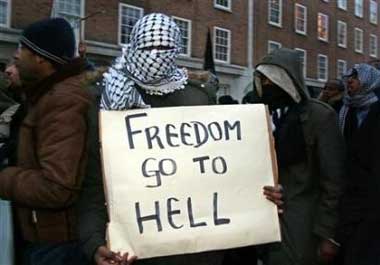

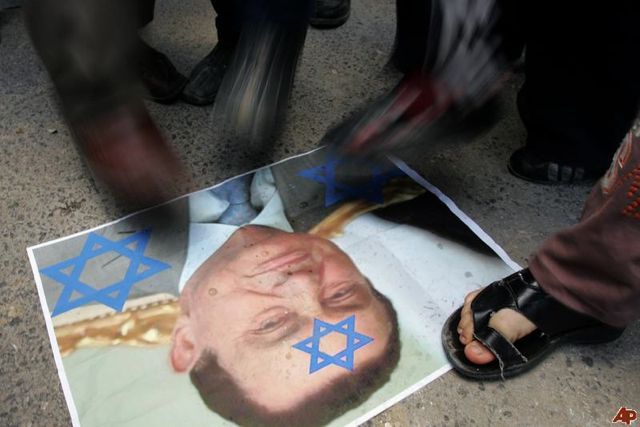


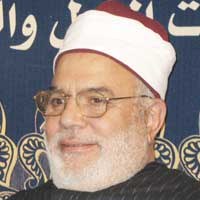
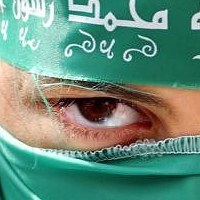
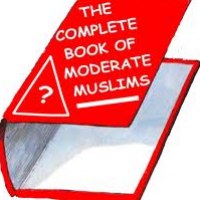
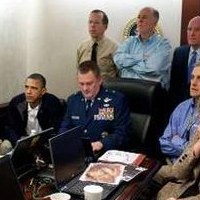




#Egypt: the Reality of the #MuslimBrotherhood | #Islamism #Israel #US #sharia #Jan25 #freedom http://j.mp/gppJEv
#Egypt: the Reality of the #MuslimBrotherhood | #Islamism #Israel #US #sharia #Jan25 #freedom http://j.mp/gppJEv http://ff.im/xTLSI
RT @CrethiPlethi: #Egypt: the Reality of the #MuslimBrotherhood | #Islamism #Israel #US #sharia #Jan25 #freedom http://j.mp/gppJEv
RT @CrethiPlethi: #Egypt: the Reality of the #MuslimBrotherhood | #Islamism #Israel #US #sharia #Jan25 #freedom http://j.mp/gppJEv http: …
RT @CrethiPlethi: #Egypt: the Reality of the #MuslimBrotherhood | #Islamism #Israel #US #sharia #Jan25 #freedom http://j.mp/gppJEv
RT @CrethiPlethi: #Egypt: the Reality of the #MuslimBrotherhood | #Islamism #Israel #US #sharia #Jan25 #freedom http://j.mp/gppJEv
RT @CrethiPlethi: Must Read! #Egypt: The Reality of the #MuslimBrotherhood | #Democracy #Islamism #Jan25 http://j.mp/gppJEv
[…] of party the Muslim Brothers would found if they were allowed to do so. And Tarek Heggy explains here what the political reality of a Muslim Brotherhood government in Egypt would look […]